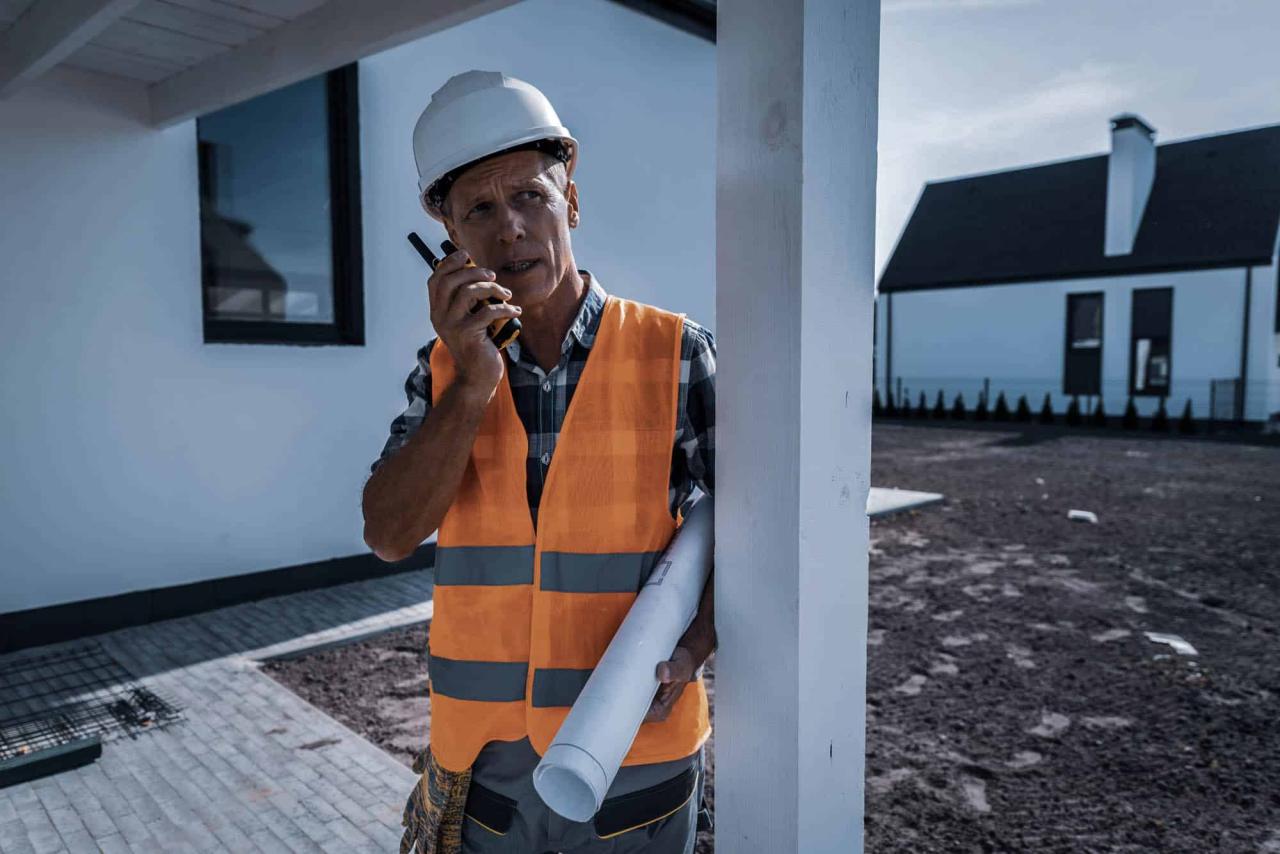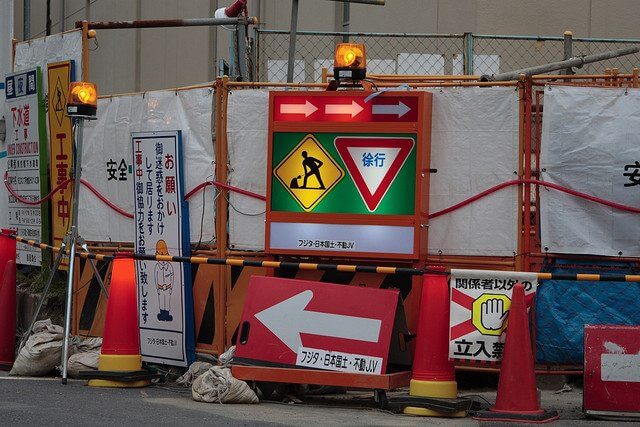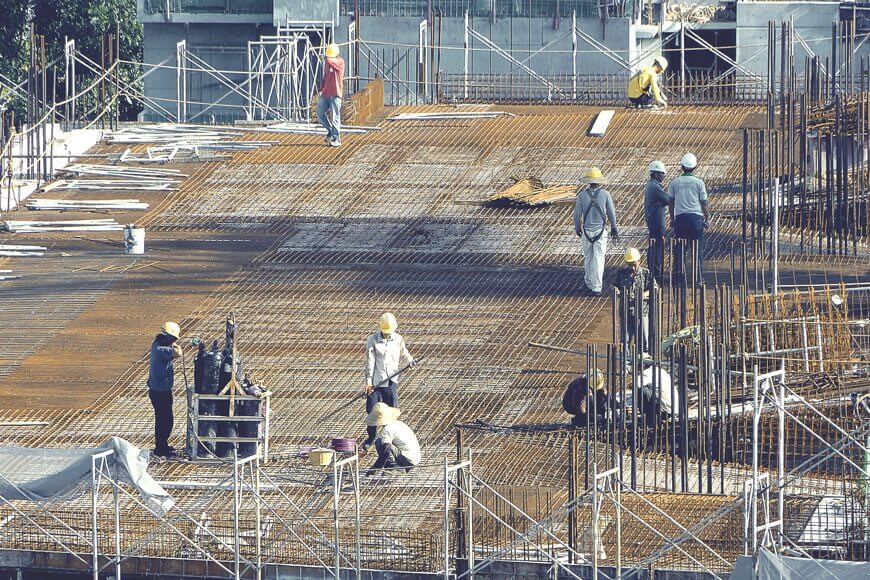Every stage of the construction process is crucial to the project’s success – the handover phase is no different, but it comes with some unique challenges for everyone involved.
Construction handover is like the finish line; everyone’s excited to get the build to the client, but it’s also the time when complacency can show its face.
We’ll explore the key components, challenges, and best practices of the construction handover process to help you deliver projects successfully and efficiently.
Free eBook: Guide to a digitised QHSE organisation
What’s the construction project handover process
Construction handover, also known as project handover, marks the final phase of a construction project where the completed build is transferred from the construction team to the client or owner. It is a critical moment when the responsibilities shift, and the client gains control of the project.
During the construction handover, the focus shifts from the construction team’s activities to the client’s needs and requirements. It entails delivering all relevant project documentation, such as plans, permits, warranties, and operation manuals, to the client. Additionally, it involves providing clear communication channels to address any outstanding issues, ensuring a thorough inspection of the completed work, and confirming that all necessary certifications and compliance standards have been met.
Construction handover is a critical milestone that signifies the culmination of the construction project and the beginning of the client’s utilisation and ownership of the building.
Key components of the project handover process
The building handover process is complex and has many moving parts; however, three of the most important components include:
Documentation
Handover documentation in the construction process encompasses critical information for transferring a finished build to the client, including project scope, timeline, challenges, and essential components like ensuring the owner has the keys. It includes legal and technical documents, operation and maintenance manuals, and equipment lists, providing the client with a comprehensive record to effectively operate, maintain, and make informed decisions about the building. Meticulous documentation ensures a smooth transition and establishes a strong foundation for the client’s long-term success in managing the property.
More to read: Why you should start sharing your documents in the cloud
Communication
Effective communication, both asynchronous and synchronous, is vital for a successful construction handover process, facilitating coordination and collaboration among site managers, contractors, subcontractors, clients, and other stakeholders. Asynchronous channels like email and document-sharing platforms enable the exchange of critical information and updates, while synchronous methods such as meetings and site visits facilitate real-time discussions and prompt issue resolution, ensuring a seamless handover experience. Prioritising clear and consistent communication helps maintain transparency, alignment, and strong working relationships among the project team.
Stakeholder engagement
Stakeholder engagement is crucial throughout the entire project, but it holds even greater significance during the construction handover process. Actively involving all stakeholders and considering their needs fosters trust, connection, and confidence, resulting in a smoother and more successful handover experience. By prioritising stakeholder engagement, construction professionals can ensure that the project aligns with their expectations, leading to improved satisfaction and long-term relationships.
 Common challenges in the construction handover process
Common challenges in the construction handover process
It should come as no surprise that those three key components are also where the most common construction handover challenges come from:
- Miscommunication: Without communication, a positive handover outcome is much more difficult to achieve; miscommunication and confusion during construction handover often happen due to a lack of visibility and transparency between your on-site and in-office teams.
- Lack of documentation: If you still rely on paper documentation, that’s likely causing many of the challenges you face during the construction handover process. It’s inefficient—it reduces visibility, allows for the delay of withholding information, and presents a serious risk if those documents get lost or destroyed.
- Conflicting expectations: This case study discusses another significant challenge of construction handover: Conflicting expectations and different interpretations of contracts and deliverables. Those misunderstandings affect everyone from the developer and contractors to the project owner.
You might also like: Construction quality management 101: Everything you should know
Best practices for successful building handover
So creating a successful handover process means overcoming those three challenges:
1. Establish clear channels of communication
One of the best ways to improve communication during handover is by using construction-specific tools to keep all communications in a single source of truth.
This allows all stakeholders to communicate in real-time to avoid misunderstandings and gives all teams access to the project data from anywhere, making maintaining complete visibility a much easier task.
2. Create a comprehensive handover plan
Having a building handover checklist on hand is a powerful way to ensure your procedures are reliable and standardised. This ensures you hand over every project similarly so you don’t miss anything important.
Other than listing the project name and person handling the handover, your checklist should include all of the handover logistics, defect management information, compliance reporting, and commissioning and testing data.
Checkout our construction checklist library
3. Ensure stakeholders are aligned
The best way to keep stakeholders aligned during handover is to keep them all on the same page with clear communication about the project’s scope and requirements. Every stakeholder should also have access to necessary documentation and information.
One way to do this is by using cloud-based construction software to align everyone by offering access to project details and updates 24/7 in real-time. This also allows stakeholders to share important files and documents via the cloud, removing the constraint of location.
Leverage technology to streamline construction handover
Construction management software like LB Aproplan makes streamlining the construction handover process easy for better project outcomes.
- Make handover simple: With the right app, you can manage handover without spending hours (or days) preparing detailed reports and inputting excessive amounts of data. Double-check your handover checklist and compare documents automatically to ensure you don’t miss a thing.
- Improve documentation: Make accessibility easy and avoid information overload with instant access to all plans and documents on and offline. You can use the same app from design to closing out subs and handing over to the client—ditch the piles of paperwork that are never in the right place when you need them.
- Enhance communication: Keep all of your documents, data, and communications in one place where everyone from subs to site managers can create, view, and share information. Then, send that data to clients during handover to streamline the process without accidentally skipping over important handover procedures.
Prioritise the handover process for better project delivery
Your project isn’t a success unless the handover goes smoothly. And while efficient communication and documentation management are crucial aspects of this process, there’s something even more important: Consistent, reliable project management during delivery.
You can avoid interrupting the construction handover process by staying on top of quality and safety during delivery, ensuring you don’t end up with hanging issues and end-of-project headaches.
So make smart decisions during handover with real-time construction management software and gain insights into your build from design to delivery – Better project delivery starts here.




